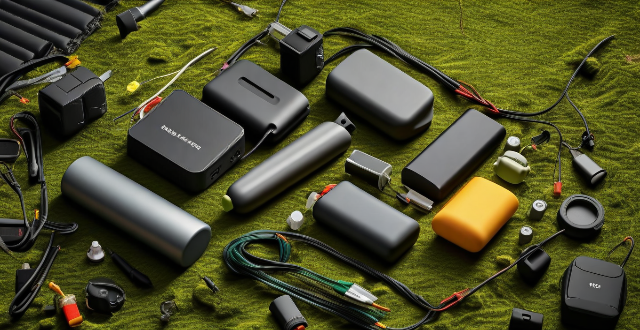Lithium batteries are widely used in various applications due to their high energy density, long lifespan, and lightweight nature. They power portable electronics like smartphones, laptops, and gaming devices; electric vehicles including cars, motorcycles, and bicycles; energy storage systems for solar power and backup supplies; medical devices such as pacemakers and monitors; aerospace and defense technologies like satellites and drones; tools and devices including power tools and wireless communications; wearable technology like smartwatches and AR/VR headsets; and outdoor and recreational equipment such as camping gear and flashlights. These batteries have transformed how we use our gadgets and vehicles, making them more efficient, lighter, and longer-lasting.

Common Applications for Lithium Batteries
Lithium batteries have become an integral part of modern technology due to their high energy density, long lifespan, and lightweight nature. Here are some common applications for lithium batteries:
1. Portable Electronics
- Smartphones and Tablets: These devices require a reliable power source that can last for hours on end. Lithium batteries provide the necessary power without adding too much weight or bulk.
- Laptops and Notebooks: Many laptops and notebooks use lithium-ion batteries to ensure long battery life during travel or when away from a power outlet.
- Portable Media Players: MP3 players, portable DVDs, and e-readers rely on lithium batteries for extended usage.
- Handheld Gaming Devices: Devices like Nintendo Switch and various handheld consoles utilize lithium batteries for their portability and longevity.
2. Electric Vehicles (EVs)
- Electric Cars: Lithium-ion batteries are the heart of electric vehicles, providing the necessary power to drive the car over significant distances.
- Motorcycles and Bicycles: Electric motorcycles and bicycles also use lithium batteries for their lightweight and efficient power delivery.
3. Energy Storage Systems
- Solar Power Storage: Lithium batteries are often used in conjunction with solar panels to store excess energy generated during the day for nighttime use.
- Backup Power Supplies: For homes and businesses, lithium batteries serve as backup power sources during outages, ensuring uninterrupted electricity supply.
4. Medical Devices
- Heart Pacemakers: Some pacemakers use lithium batteries due to their reliability and long service life.
- Medical Monitoring Devices: Glucose monitors, insulin pumps, and other medical monitoring devices often employ lithium batteries for consistent performance.
5. Aerospace and Defense
- Satellites: Lithium batteries are ideal for space applications because they can operate in extreme temperatures and provide reliable power over long periods.
- Drones: Both civilian and military drones use lithium batteries for their high energy-to-weight ratio.
6. Tools and Devices
- Power Tools: Cordless drills, saws, and other power tools increasingly use lithium batteries for longer run times and more convenience.
- Wireless Communications: Wireless routers, modems, and other communication equipment may use lithium batteries as a backup power source.
7. Wearable Technology
- Smartwatches and Fitness Trackers: These devices need compact batteries that can last for days or even weeks between charges.
- AR/VR Headsets: Augmented reality and virtual reality headsets often use lithium batteries to keep them running smoothly.
8. Outdoor and Recreational Equipment
- Camping Gear: Lights, coolers, and other camping gear benefit from the use of lithium batteries.
- Flashlights and Lanterns: High-performance flashlights and lanterns utilize lithium batteries for brighter light and longer lifespans.
In conclusion, lithium batteries have revolutionized the way we power our gadgets and vehicles, making them lighter, more efficient, and longer-lasting than ever before. As technology continues to advance, it's likely that we'll see even more innovative uses for these versatile power sources.